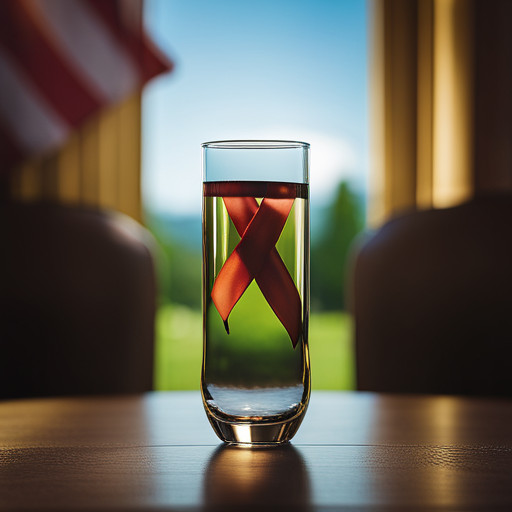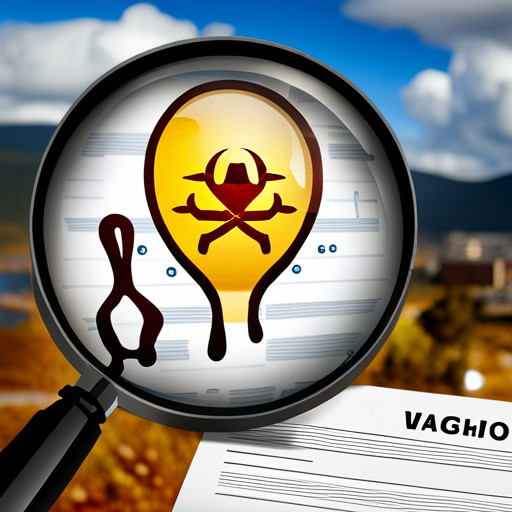The Link Between Camp Lejeune Water and Ovarian Cancer Lawsuits
This article explores the correlation between the contaminated water at Camp Lejeune and the incidence of ovarian cancer.

It delves into the specifics of the toxic chemicals present, the establishment of the Camp Lejeune Justice Act, and the legal implications for those affected.
The discussion extends to potential settlement amounts and the importance of legal consultation in such cases.
The paper presents an objective analysis, aimed at understanding the broader implications of this significant environmental and health issue.
Key Takeaways
- Camp Lejeune, a U.S. Marine Corps base, experienced heavy contamination of its water supply in the 1980s with toxic chemicals such as perchloroethylene (PCE), trichloroethylene (TCE), benzene, and vinyl chloride.
- Extensive scientific research studies have shown that women exposed to the toxic water at Camp Lejeune have a higher risk of developing ovarian cancer, as well as other female cancers such as breast and cervical cancer.
- Anyone who resided or worked at Camp Lejeune prior to 1988 and was subsequently diagnosed with ovarian cancer may have a potential lawsuit under the Camp Lejeune Justice Act (CLJA), which covers both military personnel and civilians.
- Settlement amounts for Camp Lejeune ovarian cancer cases can vary depending on factors such as the severity of the illness and individual circumstances, but successful plaintiffs have received compensation for medical expenses, pain and suffering, and other damages.
Unveiling the Camp Lejeune Water Contamination Scandal

The Camp Lejeune water contamination scandal, which came to light in the 1980s, revealed that the base's water supply was heavily tainted with toxic chemicals such as perchloroethylene (PCE), trichloroethylene (TCE), benzene, and vinyl chloride, leading to increased risks of various cancers including ovarian cancer among residents and employees.
The impact of the contamination extended beyond cancer, affecting other health conditions. Research indicated a correlation between the polluted water and diseases of the liver, kidney, and nervous system. Furthermore, adverse impacts on reproductive health were noted, including instances of infertility and miscarriage.
In addition, children born to parents exposed to the contaminated water exhibited higher rates of neural tube defects and childhood leukemia. The severity and breadth of these health issues highlight the profound implications of the contamination.
Identifying the Toxic Chemicals in Camp Lejeune Water

Identified as the primary contaminants in the water supply of this military base were two specific toxic chemicals: perchloroethylene (PCE) and trichloroethylene (TCE).
Investigations into the long-term health effects of Camp Lejeune water contamination revealed the impact of these carcinogens on the base's population. PCE, linked to several health conditions, was utilized by a local dry cleaner whose improper waste disposal practices led to groundwater pollution. Similarly, TCE, used in maintaining military equipment, found its way into the water supply due to negligent disposal methods.
This crisis, a result of government negligence, has instigated an urgent need for remedial measures to prevent further damage and address the health issues faced by those exposed to the contaminated water.
Establishing the Connection Between Camp Lejeune’s Polluted Water and Ovarian Cancer

Extensive research has been conducted to evaluate the potential correlation between exposure to contaminated water at the military base and the increased incidence of ovarian malignancies among its residents.
Investigations into the long-term health effects of exposure to toxic water at Camp Lejeune have revealed an alarming connection. Studies have shown a statistically significant increase in the incidence of ovarian cancer among women who were exposed to these hazardous substances.
Furthermore, analysis of the Camp Lejeune water contamination case has shed light on the role of government negligence. Failures in regulatory oversight and a lack of timely action allowed the contamination to persist, thereby exacerbating its health impacts.
Thus, understanding these factors is crucial in evaluating the full extent of the damage caused by the contamination.
Determining Eligibility for Filing a Camp Lejeune Ovarian Cancer Lawsuit

Potential litigants in cases related to the environmental health crisis at a certain military base must meet specific criteria to be deemed eligible for filing a lawsuit. The legal implications of Camp Lejeune water contamination are complex and require potential claimants to demonstrate a causal link between their health conditions and exposure to the contaminated water. This includes:
- Proof of residence or employment at Camp Lejeune prior to 1988
- Medical documentation of a diagnosis of a specified condition, such as ovarian cancer
- Evidence of exposure to contaminated water
- Validation of the claim within the guidelines of the Camp Lejeune Justice Act
- Consultation with a legal professional experienced in these lawsuits
These steps are crucial for seeking justice for victims of Camp Lejeune water contamination.
Exploring the Potential Settlement Amounts in Camp Lejeune Ovarian Cancer Cases

Understanding the range of compensation in legal cases related to environmental health crises, such as that at a certain military base, necessitates a nuanced examination of factors including the severity of illness and individual circumstances.
In the context of Camp Lejeune, potential settlement options in ovarian cancer cases are influenced by various compensation factors. These may encompass medical expenses, pain and suffering, loss of earnings, and other damages resulting from exposure to contaminated water.
The nature of the illness, the extent of exposure, and the subsequent impact on quality of life are carefully considered. Each case is evaluated on its own merits, and hence, settlement amounts can significantly vary.
Therefore, consultation with legal professionals experienced in such lawsuits is essential for understanding potential compensations.
Seeking Legal Advice for Camp Lejeune Ovarian Cancer Lawsuits

Having explored the potential settlement amounts for Camp Lejeune ovarian cancer cases, the focus now shifts to the importance of seeking legal advice for initiating such lawsuits. Legal counsel plays a pivotal role in navigating the complexities of these cases.
Legal professionals can elucidate the importance of early detection in ovarian cancer cases, which can significantly impact the outcome of the lawsuit.
They can help claimants understand the role of government accountability in Camp Lejeune water contamination.
Lawyers can guide claimants through the intricate process of gathering evidence to establish a strong connection between the water contamination and the development of ovarian cancer.
They can help interpret the Camp Lejeune Justice Act and its provisions, ensuring claimants fully understand their rights.
Frequently Asked Questions
What Are the Long-Term Health Effects of Exposure to the Toxic Chemicals Found in Camp Lejeune Water?
Long-term health impacts of exposure to Camp Lejeune's water, containing toxic chemicals like perchloroethylene, trichloroethylene, benzene, and vinyl chloride, have been extensively studied. Results indicate a correlation between these chemicals and various diseases, including increased risk of ovarian, breast, and cervical cancers.
Additionally, harmful neurological, hepatic, and renal effects have been observed. Therefore, the chemical composition of Camp Lejeune's water has significant implications for disease correlation and long-term health.
Are Family Members of Those Who Lived or Worked at Camp Lejeune Eligible to File a Lawsuit if They Develop Health Issues Related to the Water Contamination?
Legal eligibility for filing a lawsuit related to Camp Lejeune water contamination extends to family members who resided or worked at the base. Compensation procedures, governed by the Camp Lejeune Justice Act, allow these individuals to seek recompense for health conditions associated with the contamination.
It is advised to consult a legal professional versed in such cases to discuss individual circumstances and potential settlement options.
How Has the U.S. Government Responded to the Camp Lejeune Water Contamination Scandal?
The U.S. government has demonstrated accountability for the Camp Lejeune water contamination through various compensation procedures.
Legislation such as the Camp Lejeune Justice Act has been enacted, enabling affected individuals to pursue lawsuits.
Furthermore, the Department of Veterans Affairs provides health benefits to eligible veterans and family members exposed to the contaminated water.
These actions reflect the government's response and commitment to addressing the health issues arising from this environmental scandal.
What Measures Have Been Taken to Clean up the Water at Camp Lejeune and Ensure It Is Safe for Current Residents?
In response to contamination, substantial cleanup techniques have been employed at Camp Lejeune. Remediation efforts include extraction and treatment of contaminated groundwater, removal of hazardous waste, and continuous monitoring.
Regular water testing is conducted to ensure safety, with results made accessible to residents. These measures aim to address past issues and prevent further environmental damage, safeguarding the health of current and future occupants.
Are There Other Military Bases With Similar Water Contamination Issues?
Investigations into water contamination at military bases reveal this issue extends beyond Camp Lejeune. Several bases reportedly exhibit similar contamination problems, including Fort Detrick and Naval Air Station Joint Reserve Base Willow Grove.
Contamination Accountability is critical in addressing these issues, with the implementation of preventive measures seen as paramount. Comprehensive water testing, strict regulation of chemical disposal, and ongoing monitoring are vital steps in mitigating further contamination risks.




